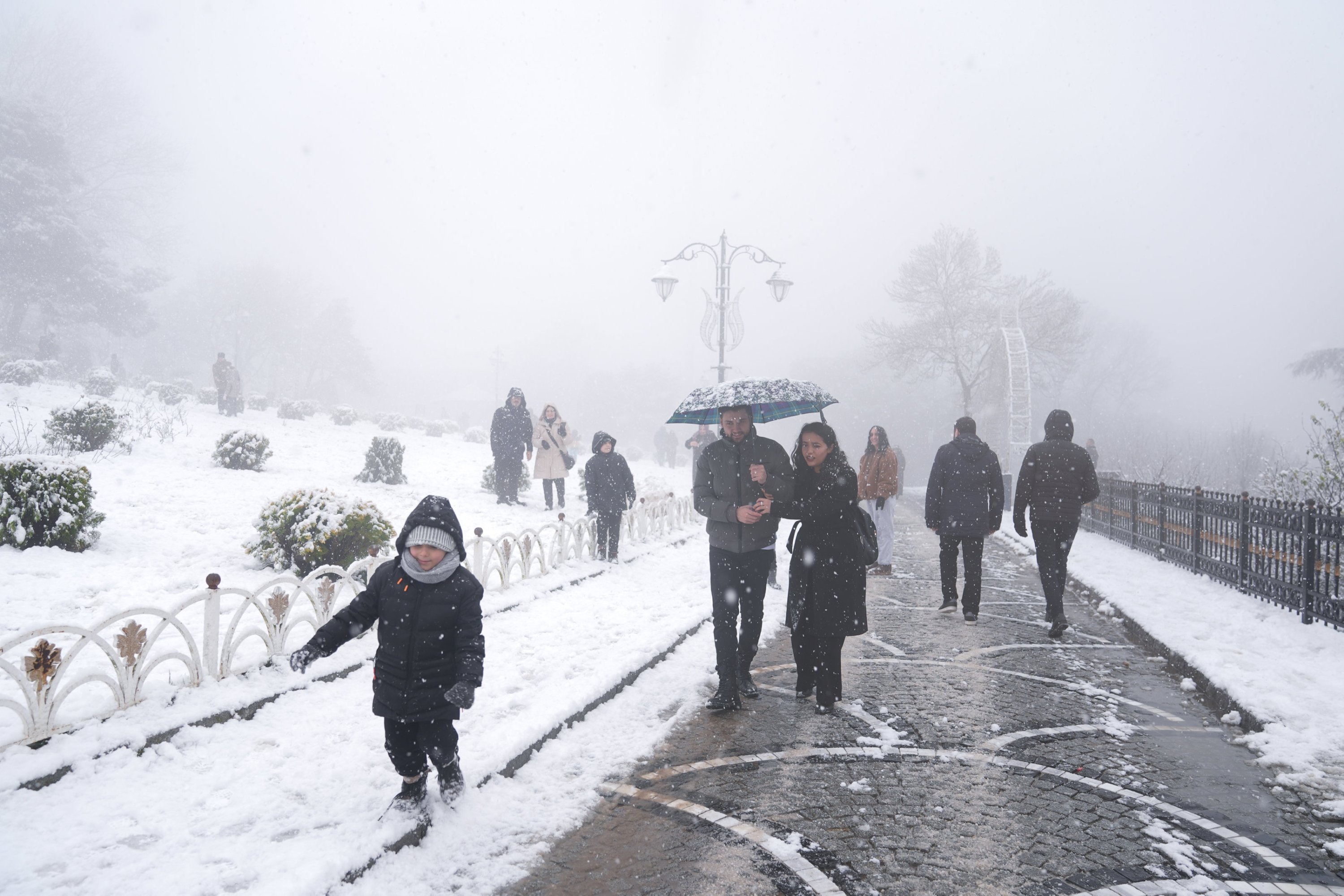© Turkuvaz Haberleşme ve Yayıncılık 2026
In mid-February, Türkiye is facing an unusual surge of heavy snowfall, disrupting what had otherwise been a winter season marked by mild conditions. The snowstorms have led to widespread disruptions, including the closure of hundreds of village roads across multiple provinces.
Meanwhile, a thick fog has descended on Istanbul, causing significant disruptions to maritime and road traffic. The fog, which began late at night and persisted into the morning, severely reduced visibility and complicated transportation throughout the city.
In response to the conditions, maritime traffic in the Bosporus was suspended at 3:10 a.m. According to a statement from the Ministry of Transport and Infrastructure's Directorate General of Coastal Safety, this suspension applies in both directions across the Bosporus to ensure the safety of vessels navigating the strait.
In addition to maritime disruptions, some ferry services run by the municipality were also canceled due to the dense fog. The service interruption remains in effect until further notice, with a statement from the operating company citing "adverse weather conditions" as the cause.
The fog also caused significant challenges for drivers. In the early morning, vehicles on bridges and major highways slowed down as visibility deteriorated. The iconic Fatih Sultan Mehmet Bridge was barely visible, as fog covered it completely. The 15 July Martyrs Bridge also became shrouded in mist, reducing visibility to the point where only parts of the bridge's towers were visible in aerial footage.
Despite the challenges posed by the weather, the fog also created stunning visuals. Aerial shots captured the Bosporus and its iconic bridges disappearing into the thick fog, with the 15 July Martyrs Bridge almost disappearing entirely into the clouds. These dramatic scenes were captured by drones, highlighting the ethereal beauty of the misty morning over Istanbul.
Authorities advise motorists and maritime traffic to remain cautious, with conditions expected to persist throughout the day. The government has emphasized the importance of staying updated through official channels for any further changes to the transportation schedules.

Efforts to reopen roads following snowstorms have led to the closure of 581 village roads across several provinces in northern Türkiye. The affected provinces include Çorum, in central Türkiye and Sinop, Tokat, Amasya and Kastamonu, which are in northern Türkiye, and Adıyaman in the southeast of the country.
In Çorum, work is underway to reopen 38 village roads that have been closed to traffic due to the heavy snowfall, as confirmed by the Çorum Provincial Special Administration.
In Sinop, 83 village roads are currently inaccessible. The closures are spread across several districts, including 12 roads in Ayancık, four in Gerze, 36 in Boyabat, three in Durağan, 21 in Erfelek, three in Saraydüzü and four in the central district.
In Tokat, 50 village roads are blocked and Amasya faces similar issues, with 75 roads closed to traffic.
The situation is most severe in Kastamonu, where 335 village roads are completely closed due to the ongoing snowstorm.
Due to the heavy snowfall in Adıyaman, 298 village and hamlet roads have been closed to traffic.
According to a statement from the Provincial Special Administration, the snowfall that began on Tuesday night is still continuing in the city. Due to the intense precipitation, 24 roads in the city center, 19 in Besni, 20 in Çelikhan, 29 in Gerger, four in Gölbaşı, four in Kahta, 17 in Sincik, five in Tut and 176 hamlet roads in the districts have been closed to traffic.
Efforts to reopen the roads continue as Provincial Special Administration teams work around the clock to clear snow and restore access to rural areas. The ongoing snowstorm has significantly disrupted transportation, and authorities are prioritizing these efforts to ensure the safety and mobility of residents.
On Feb. 12, the General Directorate of Meteorology issued a warning for heavy snowfall in the regions of Malatya, Elazığ, Erzincan, Tunceli, Bingöl and Muş, as well as the northern parts of Adıyaman, Batman and Diyarbakır.
According to the announcement, the heavy snowfall is expected to begin on the morning of Feb. 13 and continue until the morning of Feb. 15. The forecast predicts that the snowfall will be heavy in the mentioned regions, with 10 to 20 centimeters (3.94 to 7.87 inches) of additional snow on top of the existing snow cover and up to 20 centimeters or more of further snow in higher elevations.
The public has been advised to be cautious and take precautions against potential hazards such as icy roads, freezing, transportation disruptions and blizzards.
